Measuring 2011 on the Sticky Scale [Year in Review, Part 1]
by javabeans
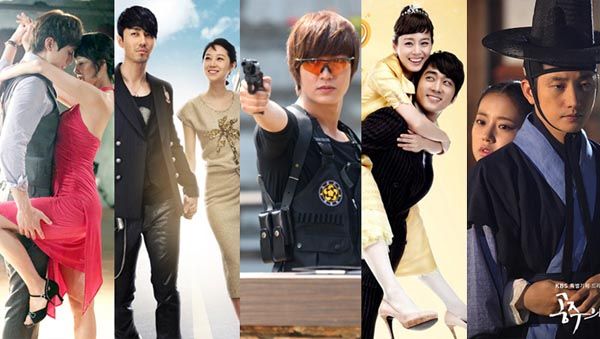
Time for another Year In Review series! How did a year pass by so quickly? I guess when you’re busy watching dramas, time flies.
This is my fifth year (eek) doing this series, which means you basically know the drill by now. (You can refer to the year-ender tag to catch up on past posts.) You had a chance to vote for your favorites of 2011, and now it’s our turn to weigh in on the dramas we’ve seen.
This year I’ve tacked on a little stickymeter to my reviews, based on the discussion girlfriday and I had in our last podcast about “drama stickiness.” Which is to say, regardless of a drama’s quality, how much of an impression does it leave three, six, twelve months down the line?
As in past years, you’ll notice I didn’t watch every series that aired this year, despite my best attempts to swap sleep for dramas. Also, I’m not reviewing shows that I haven’t seen fully (with the exception of those that are still airing). However, looking over the series that’ll be covered in the upcoming Parts 2 through 5 of the review series, I can assure you that we’ve got a pretty good spread covered, so please keep an eye out for the posts to come.
SONG OF THE DAY
Me Too, Flower OST – “Sunset Street” [ Download ]
Audio clip: Adobe Flash Player (version 9 or above) is required to play this audio clip. Download the latest version here. You also need to have JavaScript enabled in your browser.
The following are in order of start date:
Dream High
Sticky Factor: Fun-sticky, like a piece of candy you’re happy to suck on till it’s gone, leaving a simple, sweet aftertaste.
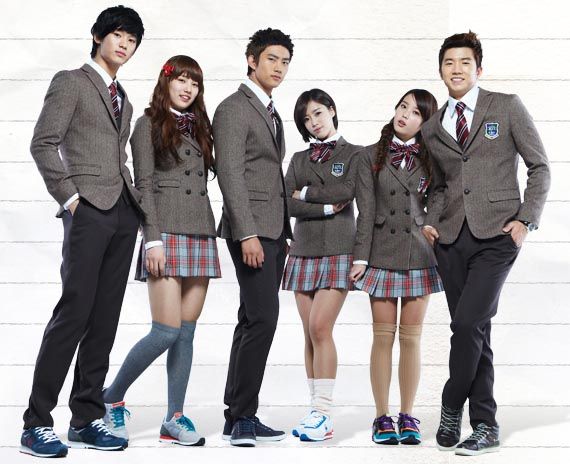
Who doesn’t love a good underdog story?
Dream High took that concept, set it in an arts high school, and populated it with passionate, driven youngsters with stars in their eyes and dreams in their hearts — then upped the ante multiple times over by continually fiddling with the circumstances so that the underdog-victor dynamic was always in flux. So while you may have been constantly rooting for the underdog, at any given moment that underdog might be any one of six characters.
It was a clever way to keep things evolving, ensuring that the relationships were always in development, rather than sticking to a static good-evil dichotomy. The show trusted its viewership to follow the characters — even when they were dropping flowerpots on each other’s heads or calling each other third-rate — rather than a tried-and-true formula. Thus it gave everyone more depth than you might expect of a fluff teen drama, as a result making it more than a fluff teen drama.
Casting is always tricky when you’re using more than one rubric of measurement, i.e., something other than acting talent. The need to balance the acting with the musical performance aspect led to a cast that was skewed more in favor of performance than I’d have liked, but there was enough solid acting to carry the show. Kim Soo-hyun became the heart of the drama with his shining sincerity, but you also had idols like Eunjung turning in some solid portrayals of complicated personalities. True, not everyone was up to par, but the drama turned around those weaknesses on itself and incorporated them into the story, giving us meta-funny bits like Suzy’s hilarious Hye-mi Bot.
This drama was a case where the whole became more than a sum of its parts, because while flaws could be spotted in a number of performances, together the kids had wonderful, heart-tugging chemistry. It was like feel-good magic. Who can forget Sam-dong proclaiming that Jin-gook’s underwear was shared property? Or Hye-mi figuring out how to get over her ego and learning what it meant to be a friend? Or Sam-dong crying desperately to Hye-mi to save him? Or the misfit mafia practicing dance moves in a jjimjilbang, under a hilariously eccentric Park Jin-young? The drama was full of rich development between these kids who went from being rivals to friends to emotional lifelines for each other.
And here’s where Dream High got it right — in the heartspace — because regardless of the flash and glitz of the musical numbers, or the big names of the producers, or the cameos by kpop stars, it didn’t use gimmicks as a crutch for content. The story, at its core, pulsed with real heart. For example, consider the show’s tackling of some touchy subjects, like the plotline involving a trainee being sexually assaulted by an agency president, who was subsequently vilified by the public as “asking for it.” The drama didn’t stop at mere mention of the issue, but used it as a launching pad for real emotional consequences as Baek-hee’s friends rallied around her and her teacher turned into a fierce mother hen in a way that still brings tears to my eyes. Speaking of whom, the teachers also displayed particular depth (and who could forget scene-stealing JYP, hilariously eccentric in his acting debut?). I love that we got misguided adults owning up to their mistakes, with Lee Yoon-ji fighting to reclaim her protégé’s integrity, whose loss she had facilitated in the first place.
Thanks to the success of Dream High, we’ve got the upcoming Dream High 2 to look forward to, which premieres a year after its predecessor. If it likewise proves successful, we may be looking at a lot of Dream-filled Januarys to come.
My Princess
Stickiness Quotient: Mildly sticky, but what’s left behind is just enough to remind you of the best parts while leaving behind less savory moments.
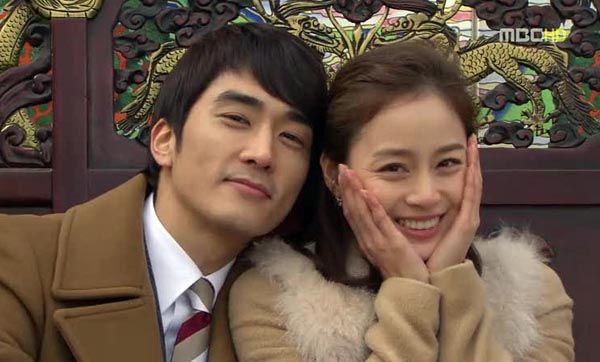
Have Kim Tae-hee or Song Seung-heon ever been this cute? Thanks to careers marked by attempts at more serious fare, both actors have managed to cultivate reputations as pretty faces with limited acting ability. Had they done My Princess earlier in their careers, perhaps that impression would be less pronounced, because what they lack in technical skill, they made up for in oodles of adorable chemistry.
Kim Tae-hee was particularly on in My Princess, making her lost princess character a charming liar and cheat — only in the most innocuous ways, of course — cheerfully manipulating with a cheeky smile on her face. The princess-out-of-water storyline provided laughs, although I couldn’t help but wish for more substance to the story as the drama went on.
The story lacked meat, and because the royal intrigue was painted in simple strokes, this made for long stretches of intrigue ping-pong. The opposition strikes. The princess strikes back. The tension mounts as the president schemes, the hateful rival schemes, and the chaebol president schemes. With one Press Conference to rule them all.
Sadly, little effort was poured into presenting a villain who was either complex or sympathetic, either in terms of writing or acting. I’m pretty sure Park Ye-jin can do better, so it’s curious that her character was so flat. I’m not a fan of dramas that place the burden of conflict onto one person’s shoulders, because then you have problems that are contrived rather than organic to this world: With one toss of her asymmetrical hair, Park pulled strings, created trouble, and gummed up the works. If getting rid of one character solves a bulk of your problems, the drama’s really coasting on fumes. (And stirring up some bloodlust. I couldn’t count how many times I’d have dearly loved for a villainness offing, even if that would’ve left us with little drama in her wake.)
The final stretch fell back on simple clichés to draw out the tension, leading to a romantic separation that didn’t make much sense. Thus the reunion, while sweet, lacked punch. It didn’t feel like a conclusion to their issues, just a temporary resolution for a temporary problem.
My Princess was really a showcase for the adorable leads and their adorable courtship, and in that sense it’s a sweet treat of a drama: Not much substance, but you pretty much know that going in. Let other dramas supply the meat ‘n’ potatoes; this one’s here for the dessert course.
49 Days
Double-sided sticky tape: It’s both good-sticky and bad-sticky, depending on your vantage point.
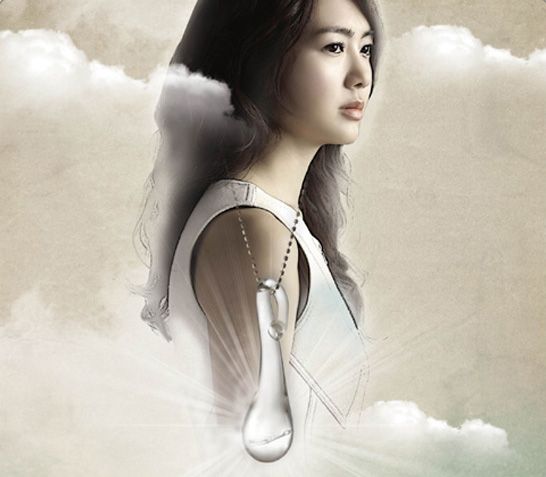
49 Days OST – “한 발짝도 난” by Jung Yeob. [ Download ]
Audio clip: Adobe Flash Player (version 9 or above) is required to play this audio clip. Download the latest version here. You also need to have JavaScript enabled in your browser.
49 Days was built on a compelling premise: If given a chance to look back on your life after it’s over, was it truly the life you thought it was? It also delivered the message that ultimately, the value of life can be judged on whether or not you were loved, and loved in return. And that love sometimes comes from unexpected places.
49 Days didn’t score all three points on my Ideal Drama Trifecta — writing, directing, acting — but it managed decently high points for two of the three. The acting was not one of this drama’s fortes, with appealing characters trumping some less-than-committed performances. (Thankfully, there was the cranky, scene-stealing Scheduler to save the day.) Even so, were I forced to choose between weak acting in a compelling story versus stellar acting in a bad story, I’d take a great story any day of the week, so it managed to come out ahead on that score.
What the show did accomplish, however, was providing a prime example of how to infuse a show with melodrama, tears, and villainy while steering clear of the dreaded makjang grab bag o’ clichés. With a gradually evolving mythology marking the heroine’s journey, the plot was constantly moving with new discoveries.
Frankly, the one time the drama did dip into the old bag of tricks with a birth secret was one of its weakest narrative moments, adding a late-game twist that felt unnecessary, given the richness of story it provided with its three tears journey, the heroine’s self-discovery, and the revelation of the Scheduler’s own tragic story. Those were fresh and compelling; no need to detract from their impact with the kind of convenient late-stage revelations that elicit more groans than satisfied sighs.
[Warning: Ending-related spoilers ahead.] Alas, the ending left a bad taste in my mouth that soured the experience, because it felt untrue to the spirit of the show. I suspect most viewers fell into one of two extremes: The Ending Rocked camp, and The Ending Betrayed Me camp. I am decidedly in the latter, not because I dislike death as a plot point (heck, I think more death would have made for a better drama in some cases), but because killing the heroine at the eleventh hour, seemingly out of the blue, seemed to negate the entire message of the show that came before it. There were a number of dramas this year centering around the concept of death, and where others promised death and gave us life, this one promised life and gave us death. Sucker-punch indeed.
Manny
Stick or slick?: Thankfully cooked in a Teflon pan, so the flaws slide right off the surface.
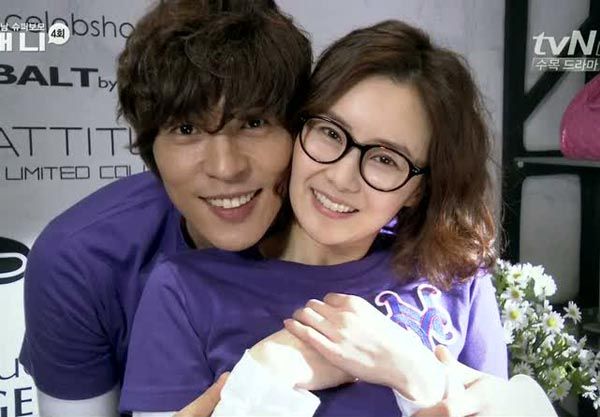
Cable channel tvN is not new, but they did seriously step up their original drama programming in 2011 to compete with the big guns. Manny was the first of this new bunch (followed by I Need Romance, Birdie Buddy, and Flower Boy Ramyun Shop), and hinged upon a simple premise — a single word, even. Manny. (In a bit of unintentional comedy, the word was used repeatedly through the series — gotta mark the brand! — and without a sense of humor.)
The show started off pleasant and easy to watch, with the manny (Seo Ji-seok) swooping in to save the day for a frazzled single mother (Choi Jung-yoon). There were flashes of potential with the manny developing a rapport with the woman’s son, an introverted little boy unable to express his abandonment issues or his longing for his absentee dad in healthy ways.
But because this is a Korean drama, romance also took up a starring role with the manny falling into a love triangle with his employer…and her sister. Oy. To be fair, it’s not unreasonable to suppose that bringing a hot, capable man into a household with two single women would lead to attraction, but one might expect that with the players being successful thirtysomething careerpeople, we’d get some maturity up in the mix. Strangely, we got adults acting like children (it’s jealousy and betrayal, schoolyard style), which threatened to steal the focus away from the more interesting plots involving the actual children.
Those stories were where show was strongest, and Manny treated the children as well-developed characters in their own right, not props — hardly the case in K-dramaland unless we’re portraying a future hero’s origins. I appreciated the attention given to the children’s psychological development, with the ever-knowing manny paying close attention to how parents’ actions can stress their children in unexpected ways. Even their growth became a plot point, giving us hilarious exchanges like the ten-year-old growing flustered by disturbing new feelings for (Lee) Seung-gi oppa, rendering her unable to sleep or concentrate: “Mom, am I going crazy?”
With all the attention given to the kids, it’s curious that the manny was so undeveloped as a character. Basically, he was the perfect problem-saver, here to save the day. Granted, Mary Poppins wasn’t given a personal dramatic arc either, but she also wasn’t there to pull double duty as a romantic lead.
Speaking of which, it’s unfortunate that the main pairing lacked romantic chemistry — you know, given that they had to go there at all — which made the whole shebang feel like an empty affair. I couldn’t help thinking that it was thematically problematic to have the boy sublimate his desire for a father onto the manny… and then to have the manny poised to become his father, literally. I wanted the drama to present a way for the manny to address the boy’s fears in a healthy way, without “solving” them by becoming the dad. Perhaps the drama realized this as well, because they pulled back on that point, leaving us with a half-baked ending that didn’t really address the problem, insomuch as it skirted it entirely.
Because of the drama’s episodic format, there was a tendency to reset relationships to the default setting at the end of a dramatic arc. While I was happy to see the end to the angst, it was also odd to turn the dial back to normal afterward, like nothing had happened. It’s an indication of the prevailing maturity setting in the drama: On or Off, with little in between.
Baby-Faced Beauty
Stuck on you like an adorable manchild who refuses to give up on his noona-love.
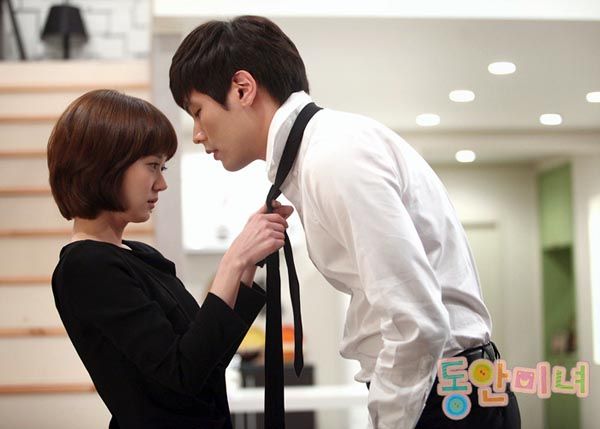
Baby-Faced Beauty is a bit of a throwback to those old Cinderella dramas, with the downtrodden heroine being buffeted about by the whims of those wielding power over her. It didn’t employ enough of a twist to make it a fairy-tale-with-a-twist, and in that respect it wasn’t terribly original. But it provided enjoyable characters and a bunch of funny, heartwarming moments that put a grin on my face.
This drama was probably my favorite noona-romance of the year, mostly owing to Daniel Choi, who proved his devotion to Jang Nara a dozen times over by rising to the occasion and putting her first and foremost, above his own desires, even when that mean he didn’t claim credit. He swooped in to save the heroine from harm, but never in a chauvinistic, “Here, little lady, let me take care of that for you” sort of way. By using his own skill set to set the stage for her to shine on her own merit, he made himself indispensible to her in one sense, but never made her into a helpless damsel in distress.
You could argue that this is what made their relationship satisfying both on a romantic and friendship level, because they both brought different things to the table. She was the creative force, he the marketing brain. She was the talent who lacked confidence, and he was the cheerleader who urged her to believe in her ability.
Alas, the heroine proved to be one of the drama’s weaknesses, in that she remained the meek victim for much of the series, while sneakier foes cooked up a number of plots to discredit her. True, she vanquished them each time with her talent rather than wiles, making for a series of underdog triumphs. But I couldn’t help but wish for more from her, and was ultimately dissatisfied in her lack of personal growth. She did cause trouble a number of times — even if many times she was set up beforehand — and it became hard to argue with the villainness of the piece when she muttered that the heroine sure was a constant liability for the company.
Thanks to the old-school Cinderella setup that kept the heroine’s character in pristine condition throughout, she went through a fairly unremarkable — and therefore not-so-fulfilling — personal trajectory. Perhaps her frustrating static quality was paid off in the heartwarming transformation of the hero, who matured out of a petulant brat into an adult who learned how to take responsibility (though thankfully without losing any of his adorkable charm in the process). It was a satisfying twist to take away his oppa status to the seven-years-older heroine, in exchange for actually growing up. At least somebody did.
Best Love
Stick, sticky, stuck: A magnet stuck to an opposing pole, whose electromagnetic forces cause a heart monitor to go haywire like an azalea-trampling chicken chases a potato sprouting flowers… wait, I lost track of this metaphor. Right, magnets. The kind that stick.
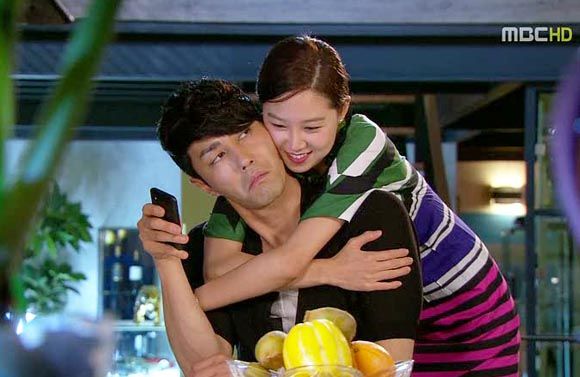
By now, you probably know whether you’re a fan of the Hong Sisters’ brand of comedy or not. Maybe their zany scenarios and tongue-tripping wordplay float your boat, or maybe they sink your battleship. After seven dramas (since 2005), I’m pretty much a forever fan, but while I expect their dramas to make me laugh and cry — sometimes simultaneously — they don’t automatically get a free pass. They’ve still got to back up the resumé with a solid show. So when they came out with Best Love this year, I was anticipating what new tricks they’d have up their sleeves.
What impresses me about the Hong Sisters is their ability to find new ways to keep churning out the hilarity. Their love of puns and metaphors regularly manifests itself in their fast-flying dialogue, but never has it been with such gleeful abandon as in Best Love. Metaphors evolved and spawned new metaphors, makin’ metaphorical babies that took on lives of their own. Much like real babies, making that metaphor complete.
The drama took the entertainment industry as its canvas, but added the interesting and ultimately rewarding choice to make its heroine a failed star, a has-been on the downward slope of her career. We’re used to the top stars ruling the drama landscape — gotta satisfy that wish-fulfillment quota somehow, and in the absence of chaebols a movie star will do in a pinch. But a flavor-of-the-month as a heroine, now dealing with the back end of fame, provided a host of issues not addressed by other showbiz dramas of years past.
I’ve always considered the depiction of showbiz in dramas a difficult prospect, because it’s tricky balancing the fictions of the dramaworld and the realities of what we know about the industry. Meta on its own isn’t funny or insightful; it’s what is said with that meta reference that makes a drama clever. In this regard, the Hong Sisters went to town, poking loving fun at their own world and twisting real-world entertainment industry facts into their fictionalized version.
In a departure from the norm, the villains of the piece weren’t specific characters so much as they were the consumers of entertainment culture — netizens, fans, you, me. Whether intentional or not, that gave the drama the opportunity to challenge social conventions and the all-powerful cult of public opinion. Not head-on and on-the-nose, though, to its credit; the issue was only ever broached with a wink and a smile (and sometimes a heart-failure-induced tear). It also put forth the idea of reputation as commodity, with a monetary value that could be transferred. Like chips, cashed in to buy favorable public opinion. It was enough to make you lament the narrow-mindedness of dramaland fans… as you stepped back and traded thoughts on the drama with other fans. How’s that for a mind-tease?
Lie To Me
Sticky like… a sticker that missed having its glue applied, which makes it a pretty picture, but little more.
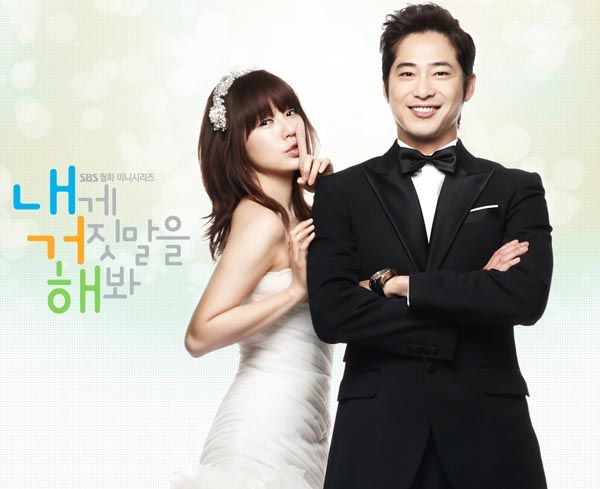
Lie To Me is what happens when you have an idea, but no story. It had a cute premise, and goodness knows the leads are fantastic at this genre, but the drama never goes beyond the concept stage: A woman lies about being married, and hijinks ensue.
For a while, there was enough promise in the setup to produce some funny bits, and who doesn’t love to see a jealous schemer literally twisted up inside in knots out of spite? I was with the couple when they were at odds, and then when they were attracted to each other; that, at least, provided some snap-crackle. When it came time to introduce conflict, however, things fizzled might fast, leaving us to deal with a flat pop.
Thus the second half devolved into half-assed story turns, which became more evident the longer it went on. Almost nothing happened after the initial phase, so the plot spun its wheels with lackluster attempts to rustle up conflict in the form of jealous exes, angry brothers, meddling aunts, and basically a host of people we didn’t care about. The show did compensate with a few hot makeout sessions between the leads, but since we’d long since abandoned logic at that point, it felt more like watching two actors kissing than two characters lost in the moment.
It’s not quite my biggest disappointment of the year (Myung-wol had higher highs and lower lows, marking a greater travesty), but Lie To Me takes the cake for most disappointing misuse of actors who can do better. Yoon Eun-hye has a talent for sucking you into her pain when she cries, but Ah-jung’s tears were prompted by such puzzling reasons that you felt, for once, that those tears rang false. Kang Ji-hwan is so good at being off-the-wall and quirky (see: Hong Gil Dong, Capital Scandal, Coffee House) that it’s a damned shame he had no personality here.
No matter how hard the actors are trying, there’s no way to sell an empty plot. In that, Lie To Me felt like a collection of writer’s B-sides, a plate of leftovers not used by a better rom-com, and partaking resulted in a feeling of dissatisfied fullness.
City Hunter
How sticky? Like a piece of gum stuck in hair. I could get rid of it, but it would require cutting out of piece of myself.
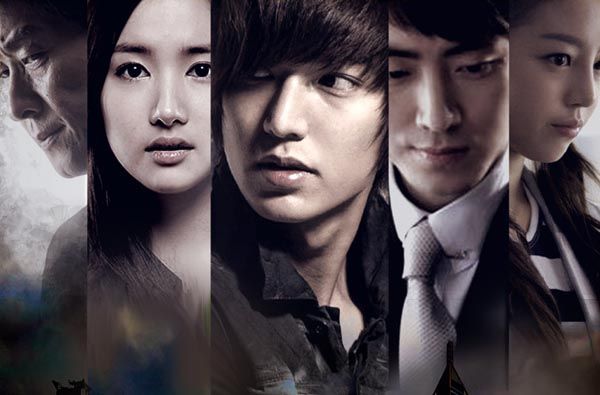
Though City Hunter was not without its flaws, of the dramas this year it hit the closest to the perfect viewing experience for me, balancing mystery, action, intrigue, humor, and emotion for a thrill ride with heart. The drama had polish: It was gorgeously directed, with a soundtrack to complement its sharp cinematography, which alternately evoked moodiness and light-hearted caper fun.
The series also gave us a hero in moral conflict, a badass villain with a deep emotional tie to our hero (not some cartoonish baddie twirling his mustache from afar, he), a heroine who saved the hero right back, and a rival determined to bring down the hero who, as it turns out, shared a lot of the same ideals as he did of what constituted right and wrong. That lawman-vigilante dynamic was one of the drama’s fortes, presenting the ostensible antagonists as two sides of the same coin; it was exciting to see them fighting each other while cheering for them to team up at the same time.
Structurally, City Hunter was well-designed with mini-arcs to carry the show, allowing for a smart balance between the overarching revenge and the smaller, continual payoffs along the way. And while the romance took a backseat after City Hunter and Nana Bear reached an understanding, I wasn’t disappointed, because the revenge was always at the crux of the series. (Although while the romantic tension ran high, it provided some thrilling conflicts, resulting in some life-and-death near-misses that felt way too near for comfort.)
The show also became something of an issue-raiser, taking on hot topics in the current cultural consciousness like the draft, tuition scams, corrupt politicians, and the like. It didn’t trumpet its causes with self-importance, but allowed the plot to convey the theme, giving viewers a vicarious thrill when the masked avenger swooped in and meted justice. Perhaps real life couldn’t produce such a vigilante hero, but we could cheer the fictional version.
City Hunter is one of the more successful examples of manga-to-drama adaptations, in that it took the basic premise of the old property and managed to make it its own, with a distinctly Korean-drama flavor. The world of the show had a satisfying richness to it; there was so much potential for future stories with all the characters, each with depth and dimension, making it perfect for episodic stories fitting into a larger, seasonal arc. Say, a second season arc, for instance. (Hint, hint.)
Perhaps diehard fans of the original City Hunter may find fault with the new version, but I think it was a smart move to turn it into a prequel of sorts, rather than attempt to re-create the original in a new setting and a new era. Thus while the overall arc resolved to provide an element of closure, it didn’t tie up everything in double-knotted bows — because ostensibly there’d be a series to follow, aka the original version of City Hunter. Or, you know, a sequel to this one. JUST SAYIN’.
Miss Ripley
Sticky Quotient: Like a thorny rose… with most of its thorns removed. You’re expecting sharp edges, but they’ve been dulled for you.
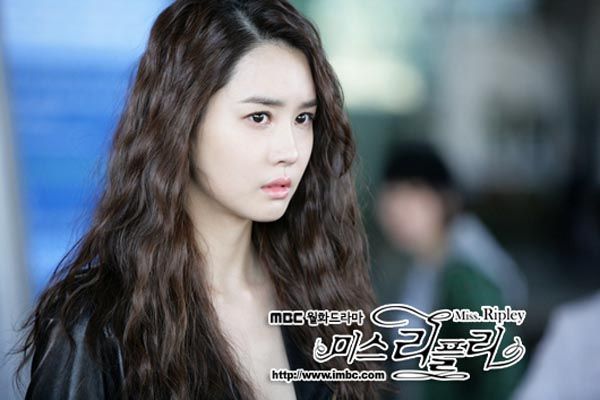
Miss Ripley had one of the more complex heroines of the year, if you can call Lee Da-hae’s Miri a heroine. Abrasive, manipulative, and morally flawed, Miri lied and cheated her way to the top (okay, middle-ish) and would have continued if her house of cards hadn’t come crashing down on top of her. But even still, you couldn’t quite call her anti-heroine material, either, and the exercise of watching Miri toe that line of likability was intriguing. At any given moment, even I didn’t know how I felt about her, so it’s no surprise that she was a cipher to the characters in her orbit.
Miss Ripley was strongest on the acting front, displaying some real clunkers in execution in its directing. Oy, that soundtrack. Blared indiscriminately over scenes with little restraint, it’s a classic example of distracting excess. I’ll never be able to hear Carmen without thinking of Miri’s ever-present Plotting Eyes and Gasps of Shock.
Lee Da-hae has always shown promise, but hasn’t been too lucky with her last few projects, so this drama marked her triumphant return. And despite a tendency to overact in early episodes, she played Miri with intensity and desperation that drew you in. She could be vulnerable one moment, stirring sympathy when her harsh upbringing was referenced, but then she’d turn around and be cruel and manipulative. I may not have liked Miri, but the drama had the curious effect of making me simultaneously wish for her to be caught in her lies and to get away with them.
Where Miss Ripley missed out on a golden opportunity is in abandoning its initial setup pitting Miri and Hee-joo as ideological opposites, as well as Yoo-hyun versus Myung-hoon. Perhaps it was the live-shoot that steered the drama away from that plan, toward a more dramatic showdown between Miri and her absentee mother. That may not be a bad choice, since it supplied us with plenty of memorable confrontations, but it did mean that the drama ditched its light/dark premise, faded out Kang Hye-jung and Kim Seung-woo’s characters, and opted to pursue familiar makjang convention instead with birth secrets and faux-incest.
I wasn’t dissatisfied with the mother storyline, because it gave us some riveting performances between Lee Da-hae and Choi Myung-gil, but I did lament the loss of thematic resonance. Nowhere was this lopsided development more obvious than in the finale, whose echo of the opening sequence highlighted Kim Seung-woo’s glaring absence from the resolution.
As a result, the drama ends with a pat ending that offers hope for all its characters (some of it unmerited, frankly), but doesn’t necessary say something. Not all dramas require a message, but Miss Ripley felt curiously devoid of one, contrary to its beginnings. Blame the live-shoot: Giving the gift of conflict, taking away dramatic purpose.
Myung-wol the Spy
Sticky or not? So you’ve got this attractive plate of doughnuts, right? Warm, inviting, looking gooey and snackable. Only the plate gets knocked over by that exhausted actress who isn’t allowed to sleep because she’s off shooting this insane drama, leaving an unsightly stain that won’t come out and feels unpleasantly tacky to the touch, so now you put a flowerpot over the spot to keep it out of sight and mind. That’s this drama.
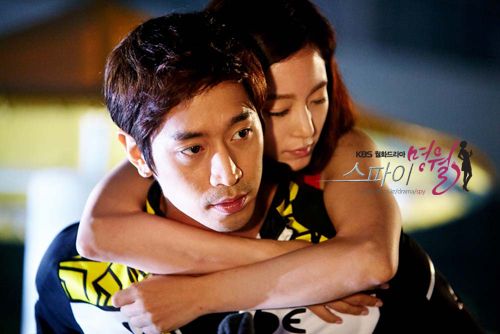
Was Myung-wol the Spy about Hallyu? Undercover spies? North Korean satire? Killing the star, or marrying him? These are questions I had at the outset, expecting that the drama would provide the answers. Sadly, they’re the same questions that lingered after its end.
Myung-wol frustrates me not because it was bad, but because it showed signs of being so much better. Wasting potential always aggrieves me more than lacking it in the first place; you get your hopes up, then Drama kicks them off a cliff, left to dangle with all its abandoned plotlines. Myung-wol’s earlier episodes showed enough promise that I can still picture what could, should, have been. There was dark humor, farce, mystery, and a hilarious spotlight on Hallyu as both the primary blight on today’s youth and the answer to a nation’s problems. Plus, that loopy satirization of North versus South tensions (no cow too sacred, don’tcha know).
Instead, the drama opted for a tonal shift, pursued some dead ends, and dropped threads (remember the South Korean spies?). Maybe it was trying to bolster flagging ratings, or maybe it didn’t set sail with a clear-enough route. In any case, it lost its direction and with it went its charm.
Still, Myung-wol the Spy did end up being quite memorable, albeit not for its content. Rather, the drama’s infamous “Han Ye-seul situation” became the talk of the town and dominated headlines, shining a light on the problematic drama-production machine, namely the live shoot system that subjects many a production to chaotic schedules and unreasonable working conditions. Han Ye-seul bore the brunt of the criticism after she walked off set, but she opened a can of worms that has long needed opening, setting off industry dialogue about a need to reform. Shortly afterward, other actors spoke up about the miserable conditions they’d seen or experienced firsthand, joining the call for change.
For a lackluster drama with poor ratings and a forgettable plot, Myung-wol sure left a mark on the entertainment industry. Even if it wasn’t for the reasons it would have liked.
The Princess’s Man
Sticky crisis! The best way to deal with something this sticky: Eat it all up, and wish for more.
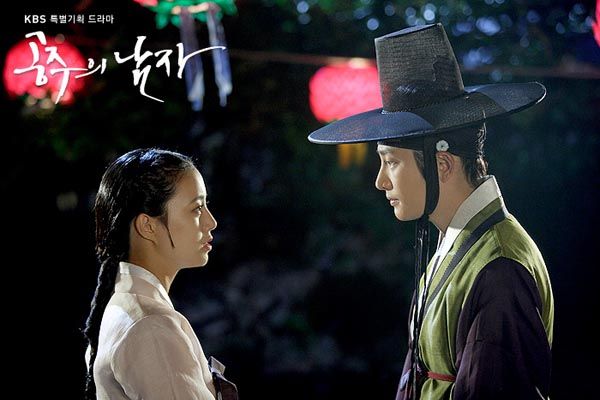
Baek Ji-young – “오늘도 사랑해” (I Also Love You Today) [ Download ]
Audio clip: Adobe Flash Player (version 9 or above) is required to play this audio clip. Download the latest version here. You also need to have JavaScript enabled in your browser.
The Princess’s Man was my favorite surprise of the year, defying my expectations and positively sweeping me up in its lush, suspenseful thrall. I hadn’t doubted that this premium sageuk could pull out good acting and a solid plot, but I was bracing myself for weepy, mournful excess — how could I not, when it was billed as a tragic romantic melodrama modeled on Romeo and Juliet?
Instead of dolor and drear, The Princess’s Man produced fierce conflict, a swift pace, and some of the strongest characters of the year. The political maneuverings were just as thrilling as the romance — says I, lover of romance — and sometimes more so. But it wasn’t one element outshining the other, so much as it was the drama doing a damn good job of intertwining the two threads — the usurper’s bloody ambition to be king, and his daughter’s love for his enemy — into one inextricable conflict. You couldn’t free those two issues from each other, because they represented two sides of one coin. The princess was no petulant lovestruck adolescent, with starry eyes only for her lover, but a woman whose own code of honor aligned with her father’s enemy (who was upright in the face of her father’s villainy), and that’s what made the problem so damn compelling.
Often in dramas, intrigue can draw out and wear thin, leaving you wondering why something must be so. In this drama, you not only understood why these two sides were in irrevocable discord, you nigh well felt the terrible conflict yourself, your heart clenching along with the characters caught between loyalties, between loves. Never static, every episode sped along with major developments that kept you on the edge of your seat, hooked. The artful cliffhangers had you cursing the screen, or if you were lucky, reaching for the next installment.
The drama featured beautiful landscapes, beautiful costumes, and beautiful music, but more than that it was populated by beautiful, complex relationships. Three friends split apart by one’s alliance with the dark side, yet never quite able to break old loyalties. A villainous father doting on his loving daughter. That daughter falling for his righteous enemy’s son, torn by filial love warring with her own moral compass. That enemy’s son struggling to reconcile his love for that woman with his hatred of her father. One princess resenting the other, and then the two aligning as sisters. Families slaughtered by the power-hungry, giving way to new families springing up among friends, bound by honor and ideology. And in the end, proof of love and faith standing tall, even in the face of death. *Tear* It’s epic and moving and intense.
As the star-crossed lovers, Moon Chae-won and Park Shi-hoo both turned in career-best performances; while not flawless, both were impassioned and fierce in a way that made you feel for their characters. She was one of my favorite characters of the year, pure verve and fire despite lacking power in a world where daughters and wives were mere shadows of their men. And he earned his hero edit with a transformation from privileged charm to tortured gravitas. (And that mane of glory! With abs of glory to match!)
Above and beyond their individual performances, though, was the chemistry they had together. Of all the recent dramas I’ve seen, theirs was probably the most compelling romance, one that made you believe in their connection and their love. One that went deeper than attraction and passion and bespoke a marriage of true minds. It wasn’t chemistry in the way that you wished for two actors to date in real life, but in the way that made you wistful, wishing these characters could be real people, because their love deserved to transcend the realm of fiction.
Scent of a Woman
Mild- to medium-sticky: Rice cake sticky. There’s some substance to the content, but no lingering stickiness.
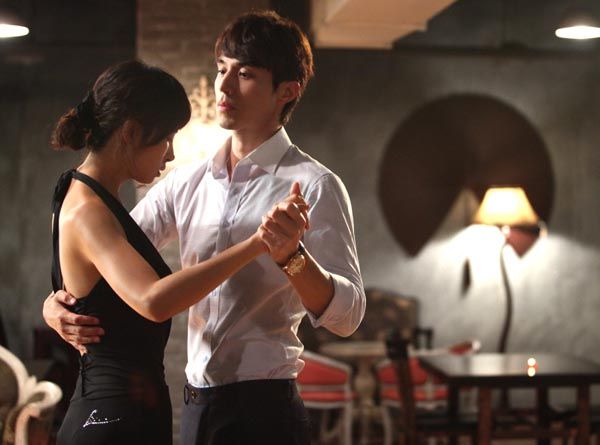
For being a story about being given a death sentence, Scent of a Woman was remarkably uplifting. Despite following the heroine’s gradual decline as her cancer progressed, the focus remained on her determination to make her time count, to claim as much happiness for herself and her loved ones.
Scent of a Woman boasted prettier-than-average visuals (gotta love that new camera SBS has been trotting out) and an evocative soundtrack that was by turns breezy and moody. It also notably wove its tango motif into a greater thematic context — not always the case with gimmicky titles — allowing the dance scenes to mark significant moments of character development. In fact, the tangoing conveyed more heat than the makeout sessions, and wrung more tears than death scenes.
Marked by strong acting performances by leads Kim Sun-ah, Lee Dong-wook, and Eom Ki-joon, it’s a shame that so much of the middle stretch was bogged down by useless angst. Frankly, in a drama about a woman who’s dying, pissy parents only get to carry a certain amount of weight as sources of conflict. The ticking clock was a much greater concern for her and for us, making the chaebol meddlers a frustrating waste of time.
It was both refreshing and liberating, though, that this drama gave the heroine license to put herself first. Dramas historically love to canonize the self-sacrificial heroine, placing on pedestals the type of long-suffering women who bear their cancer diagnosis with stoic fortitude. (See: Choi Jin-shil in A Rosy Life.) I loved that Yeon-jae (Kim Sun-ah) refused to spend another second being the sacrificing wallflower, since she’d wasted too much time already. The woman’s got things to do, things to check off her list.
To that end, the bucket list served as a symbol of that goal: The items themselves were unimportant; what counted was the fact that they were there. And in a lovely twist, the bucket list got checked off and completed…and extended, because as long as the heroine had life to live, she wouldn’t stop approaching it with purpose. If closing that book (literally) would be tantamount to being ready to die, then this is a heroine who would never be ready to die. But in taking every day without regrets, she’d know that whenever that day came, she’d be as ready as she’d ever be. A worthy lesson for us all.
Can’t Lose
Stick-o-meter: Cotton candy — sticky and sweet in the mouth, dissolving quickly into air.
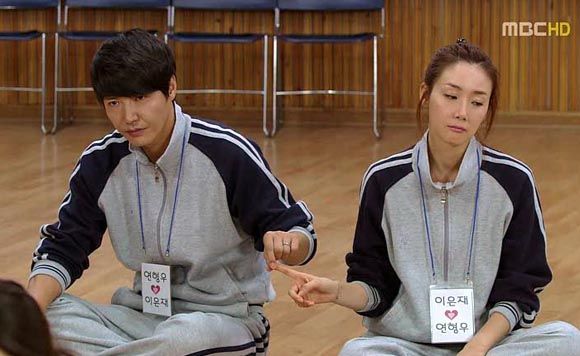
Can’t Lose reminds me of 2008’s Love & Marriage, in that it’s a sweet drama about finding love amidst divorce and getting it right the second time around, which is a nice sentiment that gives us some variety from the prevailing romantic ideal of finding your bliss just that once.
With the happily ever after a foregone conclusion, Can’t Lose’ wasn’t about the realization of love but how to keep it going in the face of some unsexy, unromantic daily tribulations. The conflicts were therefore small but rooted in the realistic, like what to do if your wife is a slob, or your husband’s a nag. What happens when you make vows to support each other but didn’t quite realize how far that promise would take you? Or when communication breaks down and romantic love isn’t enough to hold two people together?
There was a refreshing lack of evil characters or scheming villains to get in our characters’ way, meaning that the couple was their own biggest stumbling block. Their love was never (or hardly) in question, and it was their mismatched personalities that provided most of the conflict, along with some basic issues of trust, loyalty, and reliability — you know, the stuff of real marriage.
Solid chemistry between Choi Ji-woo and Yoon Sang-hyun provided plenty of bickering cuteness, as well as some heartfelt moments of miscommunication. They made you believe these were two people who wanted to be together, but really needed to work things out before that could happen. Falling in love was the easy part. Living together? Now there’s the drama.
Girl K
Stickiness: Too short to get under your skin, but has enough stick to be memorable while it lasts.
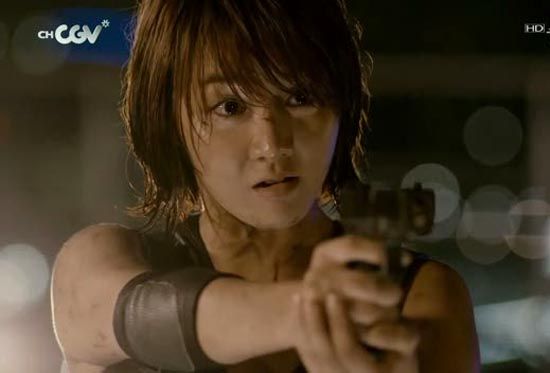
Girl K is an example of style becoming substance, because let’s face it, coolness is a huge component of this drama. Er, mini-drama. Er, whatever you call it. (It was touted as a TV movie, broadcast in three hour-long episodes.) The show is blood, guns, and gore, delivered in an artful spray, with a side order of gratuitous boobies for fun.
There’s a little more to that, of course, with the teenage girl’s revenge story providing the backbone to the plot. The show constructed just enough of a spine to bear that premise — plus a lot of combat flash — but really, the story itself was paper-thin: If you thought too hard, you might tear holes in it.
Even so, despite the thinness of Girl K itself, it made me wish for more, because the concept could support so much more. Say, a series’ worth of more. You’ve got a teenager juggling school with her assassin-by-night secret identity. Keeping your cover with the cute boy whose idea of danger is skipping class to play hooky at the fair. Being fed a line about working for good, while being cultivated as a secret weapon. Belatedly realizing the nefarious underpinnings of the organization you work for. Finding out that there are strings that come with knowledge of your true parentage. Being betrayed by your mentor. All these elements are there in Girl K, capable of being teased into a richer version. Like Alias, The Prequel.
It was thanks to the portrayal of the heroine that there was an emotional throughline to the short series; the world is surreal and stylistically exaggerated, requiring that kind of connection to ground it in emotion. Rookie actress Han Groo earned comparisons to Ha Ji-won for her ass-kicking portrayal of the young killer, hinting at a bright future ahead. And while Girl K was too short to get truly invested in the journey — it was over almost as soon as it began — it did offer some stylish, escapist fun.
Poseidon
Sticky like adhesive tape, soaked in water. What you end up with is a floppy strip of material, sadly bereft of purpose.
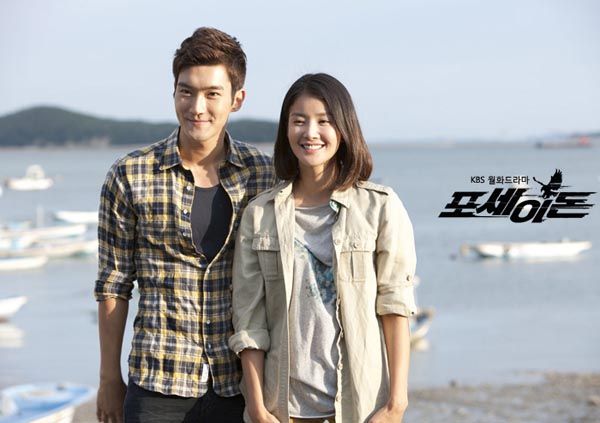
Poseidon never really had a shot, did it? After suffering numerous filming delays and losing all if its initial cast, it had scant weeks to pull together a new cast and find a new direction. I was rooting for it to defy the odds and land on its feet, but unsurprisingly, it fell way short of the mark.
RIght off the bat, Poseidon suffered from a problem of tone. As an action drama set within the Coast Guard, it aimed for cool but came off cheesy, though not enough to pull off campy fun.
Too much emphasis was placed on a cartoonish Big Bad that we never cared about, and the drama took forever to hit upon a storyline to give viewers an emotional connection to the characters. There are certain shows you might watch, glossing over the questionable mechanics of the crime plot in favor of the leads’ chemistry, or the fun banter, or the clever plotting. Poseidon falls into that category of awkward overarching crime mystery, but doesn’t compensate enough with the other factors, either.
I stuck around out of a sheer superficial desire to see Lee Shi-young and Siwon developing their chemistry onscreen, and it did come, sort of — even if their idea of emotional support was to sock each other in the face. There were signs of a budding bromance between Siwon and Yunho, former rival-buddies now separated by a murder case and a demotion. Alas, poor acting hindered that relationship from blossoming as it could have, leaving it firmly in the category of What Could Have Beens.
Ultimately, this may not be an utter failure for Siwon, who’s still building up his resumé with leading roles and could probably take lessons away from this experience. It would have been a bigger disappointment with higher-profile actors like Eric, Kim Kang-woo, and Kim Ok-bin. Then again, in their hands, maybe it would’ve been a better drama.
High Kick: Counterattack of the Short Legs
Individually not that sticky, but pile ’em all together and good luck prying them apart.
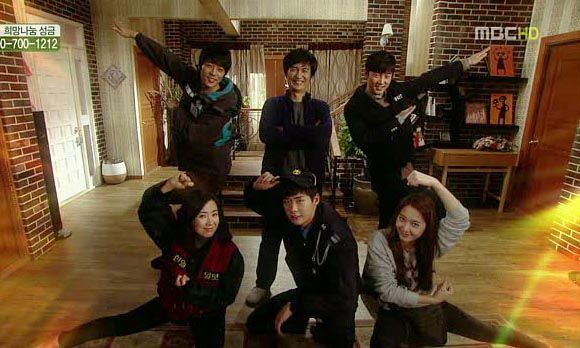
Who knew that a daily sitcom would provide some of the most tug-on-your-heart moments of emotion and poignancy this year?
High Kick 3 is the rare instance where I don’t begrudge the show for its length. In fact, far from doubting whether the show will have enough material to fill 120 episodes, I’m looking forward to each installment and wondering if the show will manage to fit in everything I want it to cover by the time it wraps up early next year.
Most shows with an episode count of 100+ inevitably fall back on filler material, recycling the same old conflicts, trotting out makjang staples like bitchy mothers-in-law, jealous exes, and the like. Heck, some miniseries fall prey to the same tendencies. High Kick 3, on the other hand, makes use of its sizable cast and episode count to explore a number of relationships. Characters alternate between playing background roles to stepping into the spotlight, allowing everyone their moment to shine.
Thanks to this rotating format, the show gives its characters space to breathe and grow and feel like real people you may know in real life. Nobody’s perfect — even seeming paragons in earlier installments (like sweet, smart, gentle Kye-sang) are given added dimension, even if that means he develops tics that make him a little less dreamy.
At the heart of the show is the Ahn family with their Yoon brother satellites (although it’s heartwarming to see the family expanding to include the neighbors, resulting into a merged super-family), and like a real family, they bicker and clash, but they always have each other’s backs. Like in our real lives, sometimes the most significant moments aren’t the ones dripping with Drama Grandeur, but can be found in small words of encouragement that turn around a bad day, or a moment of connection with an unexpected kindred spirit. This High Kick may have short legs, but it makes up for it with an oversize heart.
Vampire Prosecutor
Sticky-meter: I’m not sticky, I’m smooth like a fine wine (or is it?), and just as sultry.
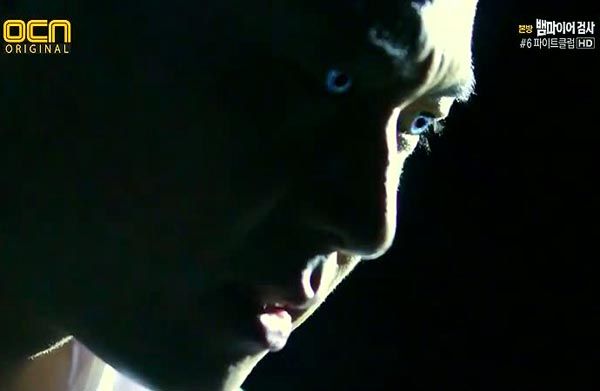
Of the two words in the attention-grabbing title, you’d think vampire would be the more prominent feature of the series, but as it turns out, the prosecutor is what keeps this slick, stylish procedural ticking. That and a seriously cool visual sensibility, marked by a cool, dark palette and some of the most beautiful blood splatters you’ve seen on TV. Or, yunno, ever.
Adding to the watchability factor is a wry sense of humor to undercut the darkness of murder, embodied in perhaps the sexiest untouchable boss ever, Mr. Vampire Prosecutor himself (Yeon Jung-hoon, reinventing himself as a smart, enigmatic vampire who’s really more like a teddy bear with fangs. A really hot, charming teddy bear). You can’t blame his trusty prosecutor teammate (Lee Young-ah) for getting flustered around him, or his bromantic cop partner (Lee Won-jong) for sticking close by his side. Or even the shameless coroner for flashing some boob, leg, or body part of the day to get his attention, for that matter.
The genre fan in me wished for more vampire, but acknowledges that the mostly-procedural element is the source of Vampire Prosecutor’s clever crimes, with their twist reveals. The supernatural factor, for the most part, is sprinkled through the episodes but takes a backseat to the straight-up mystery plot at hand. In fact, in a number of cases, the psychometry — Mr. Hottie Vampire’s blood visions — aren’t even crucial to the case. Without the vamp factor, this drama could have still succeeded as a smart crime show boasting cases unraveling with Agatha Christie-like layers.
Which isn’t to say that the vampire arc doesn’t add to the show, and it’s the ramping up of this beat that makes recent episodes particularly engage. It’s coming to close as we find ourselves one episode shy of a season, and the finale will be the determinant of whether the show made the most of its potential. Even if that answer turns out to be no, Vampire Prosecutor will have already made its mark as the highest-ranking cable drama thus far (numbers topping 4%), and a darkly funny, mind-engaging genre hybrid.
Thousand Day Promise
Stickiness Quotient: Like gum on your shoe; sticky at first, but losing its hold with successive steps.
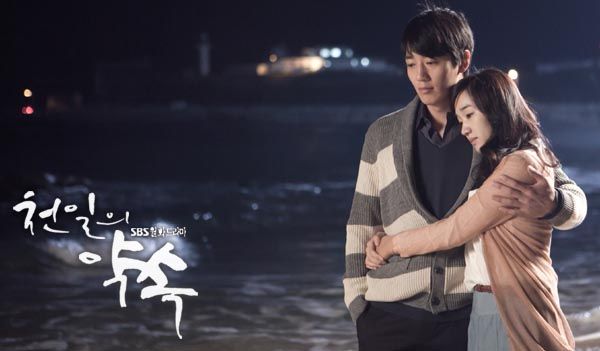
Sung Shi-kyung – “한번의 사랑” from the Thousand Day Promise OST. [ Download ]
Audio clip: Adobe Flash Player (version 9 or above) is required to play this audio clip. Download the latest version here. You also need to have JavaScript enabled in your browser.
You don’t go into a drama about a 30-year-old woman with Alzheimer’s expecting rollickin’ good times. And if that topic isn’t enough to warn you of the heartache ahead, we have appropriately named songs on the soundtrack to drive home the point, titled “Despair,” “Pain,” “Doubt,” “Disease,” “Isolation.” Granted, there’s also “Smile Again” and “Blessing,” but I think the proportion of tears to cheers is fairly apparent.
Coming from veteran scribe Kim Soo-hyun, a writer’s writer if ever there was one, Thousand Day Promise is full of weighty material peppered with lyrical, lilting passages. There’s a poetry to the writing, particularly the dark, anguished internal thoughts of our heroine, the prickly Seo-yeon, masterfully played by a commanding Su Ae. (Su Ae once again proves that she is a force to be reckoned with, portraying all of Seo-yeon’s fear, anger, bitterness, defensiveness, joy, and love with a richness of expression that proves why she’s one of the best of her generation.)
Yet I can’t help but feel that Thousand Day Promise is a drama bogged down in its importance. There’s so much extremity of emotion flying around that I’ve detached from it, watching it more as an exercise of acting than a story I care about. Some of that is due to the bloated writing; I feel like there’s a good drama in here, but it’s cluttered with dead weight, dulling its overall effect. The writing is incisive and profound when it’s intended to be, but when it’s fixated on the mundane, it feels as incessant as Aunt’s chatter.
It’s too bad that Kim Rae-won’s big army comeback had him playing such an incidental character. He’s not incidental to Seo-yeon, of course, but basically he’s an object for her to react against and to. Almost anybody could have played Ji-hyung, which makes Kim Rae-won’s warm, genuine depth as an actor wasted in the role. The romantic angle thus gets eclipsed by the brotherly love shown by Lee Sang-woo (the best oppa in the world) and Park Yoo-hwan (so vulnerable, anguished, and loving).
But all’s not gloom and tears, because the drama has interspersed Seo-yeon’s declining memory with reminders that she is surrounded by love, and suggesting that perhaps she’ll get to leave her mark on the world after all, long after she’s ceased to remember it herself.
Flower Boy Ramyun Shop
Sticky survey says: Why hello there, Superglue. You here for the long haul?
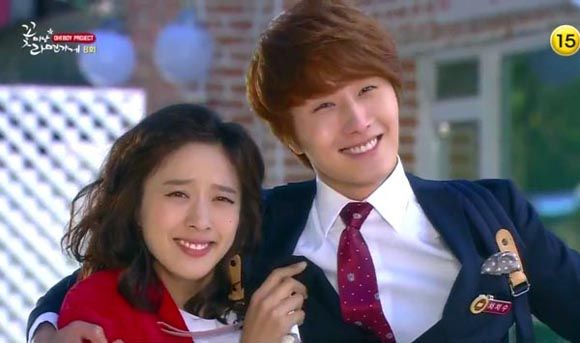
Though far from realistic, Flower Boy Ramyun Shop is the closest I’ve seen a drama come in recent years to capturing that youthful giddiness of young romance in the way of soonjung manhwas, aka shojo manga, aka those “pure comics” targeted to a largely female, youthful audience.
Characterized by a zany sense of humor — at times witty, at others quirky and random — Ramyun Shop is actually more than the fluff it presents itself as. Marketed as a eye-candy lightweight, it’s a better-written drama than you might suppose at first glance, with each episode converging on a theme that expresses itself in witty dialogue, extended metaphors, and occasionally a symbolic device. That it wraps this all up in an easy-breezy, fast-flowing plot means that this drama has successfully managed to seem effortless, without being effortless.
The show owes a lot to Jung Il-woo for its appeal, both in bringing the target audience and in bringing a ridiculous character to live and turning him into a living, breathing, emoting manchild you can’t help but feel for. It’s to Jung’s credit that he has not one noteworthy character but two, with his 49 Days Scheduler stealing scenes left and right in that show.
With three episodes left to go, the jury’s still out on how this drama will shake out, so I’m reserving judgment on its overall score. But a drama that recalls the giddy flush of youth and ushers in laugh-out-loud hilarity will always be welcome in my book.
It’s interesting to me that Ramyun Shop feels like a drama written for the younger generation, by the younger generation. The cultural references, the use of slang, the attitudes — they bespeak a plugged-into-this-generation vibe that’s different from other trendies. No wonder, then, that it’s been such a hit with the teenage and twentysomething viewership, which shows that tvN’s onto something with their marketing strategy. But I say, just keep backing up the pretty with satisfying stories — you’ll capture that audience and then some.
Tree With Deep Roots
Stickiness: Sticky in the brain, not so much in the heart.
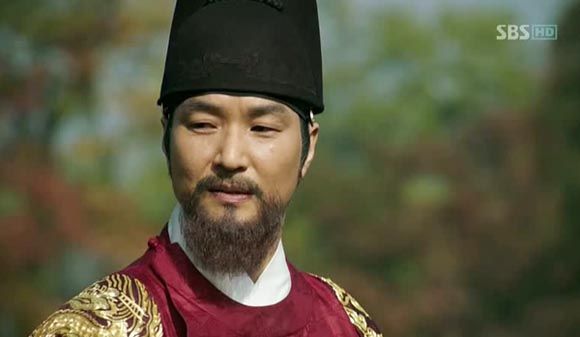
Tree With Deep Roots has been collecting quite a bit of praise, and deservedly so. It’s sharply directed, tightly scripted, and marked by a number of top-notch acting performances. (Han Seok-kyu in particular is wonderful as the king who cares deeply, determined to prove that words can achieve what brute force cannot.) There’s also suspense, darkness, and a densely plotted story that make each episode rich with brain-tickling mystery.
There’s a taut, suspenseful feel to the show that keeps you on edge, even when the scene is a mere conversation. But when conversations have such high stakes, you can’t help but feel invested in the outcome of a philosophical debate, because in this world, rhetoric can bear as much weight as action, and carry just as much consequence.
All those superlatives aside, I do find that the drama leaves me a little cold. Which is fine; not every show has to be a sentimental experience. It’s a cerebral thriller, and where other dramas give us eye candy, this drama offers up a serving of brain candy.
What this means is that I’m consistently impressed with this drama, but it’s a bit like admiring a piece of artwork from afar; coolly appraising, emotions unengaged. It doesn’t lessen the experience for me, but it is why I can feel confident declaring Tree one of the year’s best dramas without it necessarily being my favorite.
Me Too, Flower!
Sticky factor: The kind that grows on you, unsuspectingly.
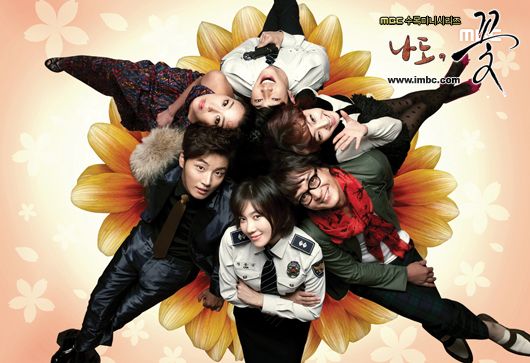
We’re ten episodes into Me Too, Flower at this point, which isn’t enough to deliver a final verdict, but gives me enough basis to consider it one of the overlooked finds of the year. The viewership is relatively small, but possesses enough enthusiasm to put Me Too, Flower into the class of mania dramas (aka, those with cult followings).
The series is populated by a quirky mix of characters, all with their own peculiarities that make them interesting. The writer has been juggling weightier issues with a lighter touch, which brings out poignancy in moments without a heavy hand. The heroine laugh-crying over a betrayal has the queer effect of engaging my sympathies more effectively than had she sunk into abject misery, just as the hero’s tendency to hide his fears behind a cheeky quip makes his eventual breakdown more rewarding when he finally shares his burden with the heroine. Dialogue tends to be witty and thoughtful.
This is the most I’ve liked Lee Jia (because generally I haven’t) since her debut in Legend; she juggles Bong-sun’s self-hatred, surliness, and girlish hopes well, and she’s got great chemistry with Yoon Shi-yoon, who’s hitting it out of the park with really solid turn-on-a-dime acting. Because it must be said, yes, I still think he looks too young, and yes, that is unfortunately a thought that intrudes on my drama-watching. It’s not so bad when he’s with Lee Jia, but it tends to be inescapable in his scenes with Han Go-eun, which have taken on uncomfortable Mrs. Robinson overtones for me. It’s unfortunate, but in a visual medium, you can’t get away from appearance-based impressions, and I can understand if other viewers are tripping on it as well.
As with My Princess, conflicts hinging upon a single meddling force tend to get real old, real fast. That’s the issue we’re facing now, with one character supplying most of the trouble, which muddies what began as an unconventional drama and sends it into the land of tired clichés. Thankfully, we still have the couple’s trust issues to explore, as well as their respective issues with the world: Bong-sun’s depression, and Jae-hee’s fear of society. If the drama can pull back on the tedious Evil Madam pulling the strings and plotting breakups, and instead bring us back to the central issues, perhaps it can reclaim its earlier charm.
And that concludes another year (phew!) in dramas. Stay tuned for more reviews ahead!
RELATED POSTS
- 2011 Beanie Awards: Vote for your favorite dramas of the past year
- 2010 Year in Review, Part 5: Editors’ Picks
- 2010 Year in Review, Part 4: Objects in mirror are closer than they appear (girlfriday’s review)
- 2010 Year In Review, Part 3: Heady with a chance of ho hum (thunderbolt’s review)
- 2010 Year In Review, Part 2: Finding the gems among the stones (Dahee Fanel’s review)
- 2010 Year In Review, Part 1: A year of surprises and disappointments (javabeans’ review)
- 2010 Beanie Awards: Vote for your favorite dramas of the year
Tags: 1 show to rule them all, 49 Days, Baby-Faced Beauty, Best Love, Can't Lose, City Hunter, Dream High, featured, Flower Boy Ramyun Shop, Girl K, High Kick: Counterattack of the Short Legs, Lie To Me, Manny, Me Too Flower, Miss Ripley, My Princess, Myung-wol the Spy, Poseidon, Scent of a Woman, The Princess's Man, Thousand Day Promise, Tree With Deep Roots, Vampire Prosecutor, year in review, year in review 2011
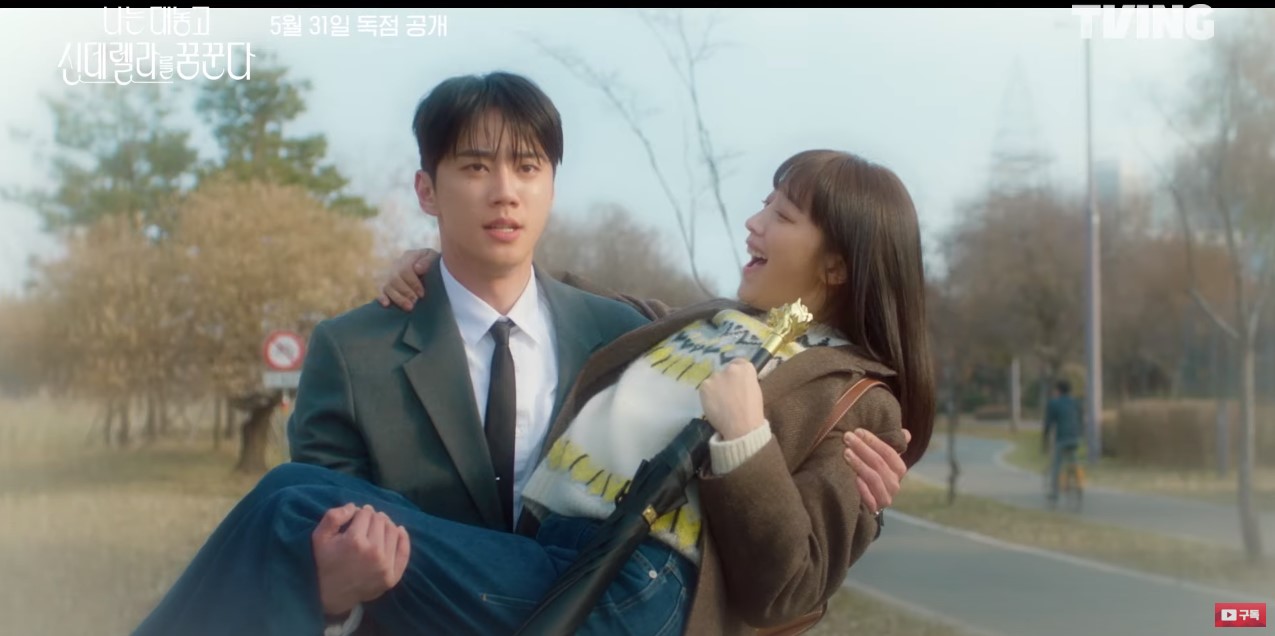

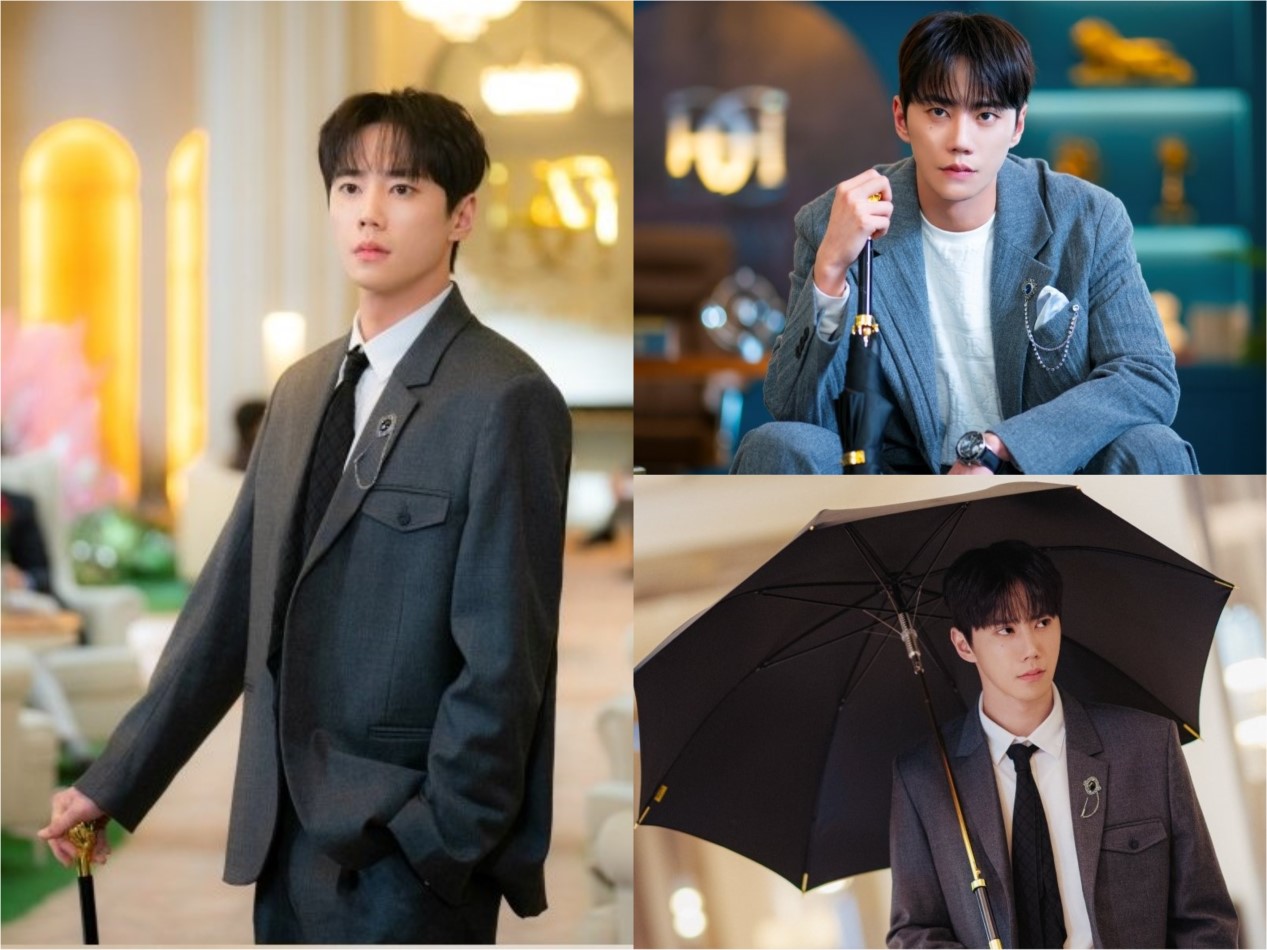
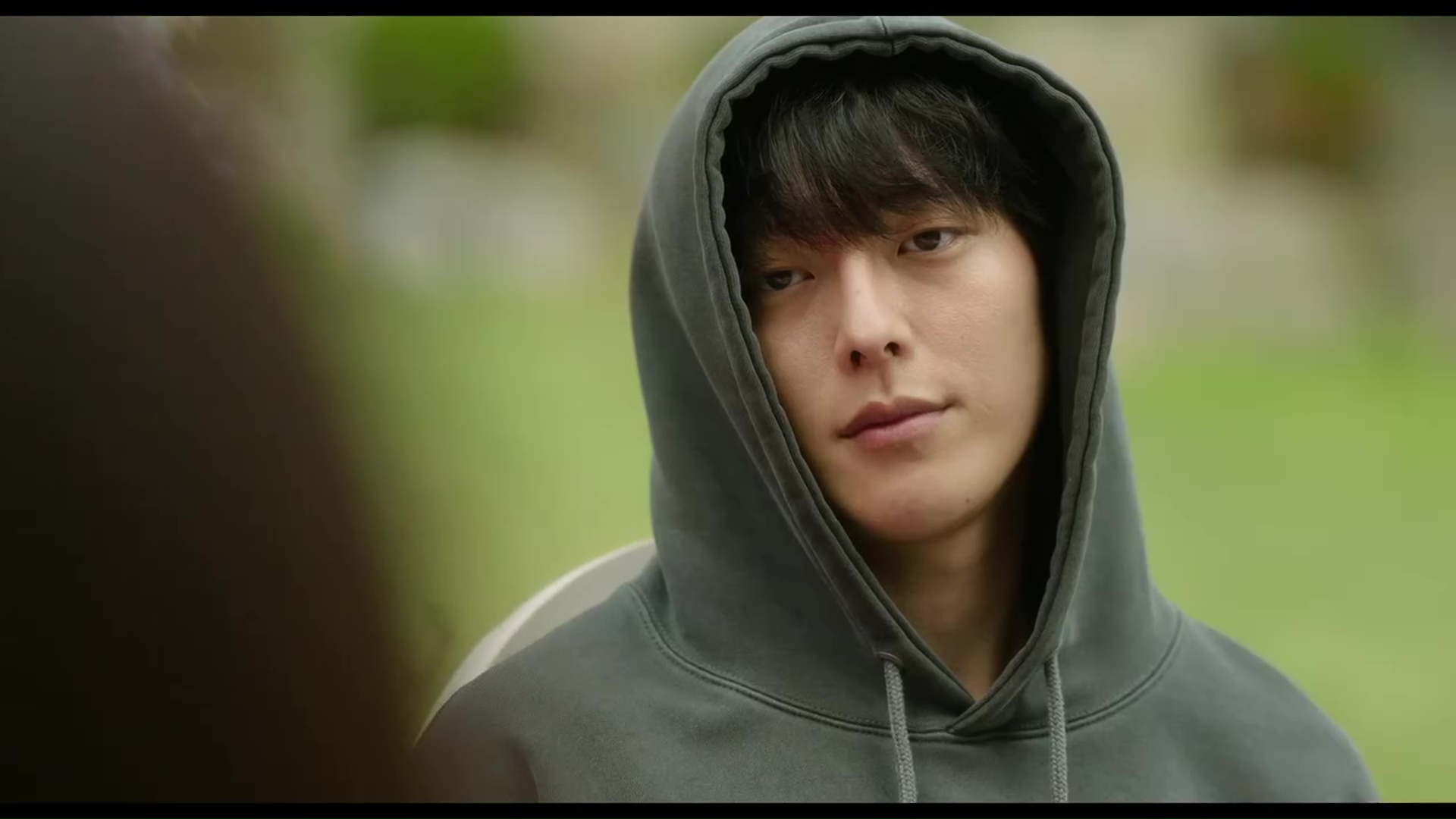
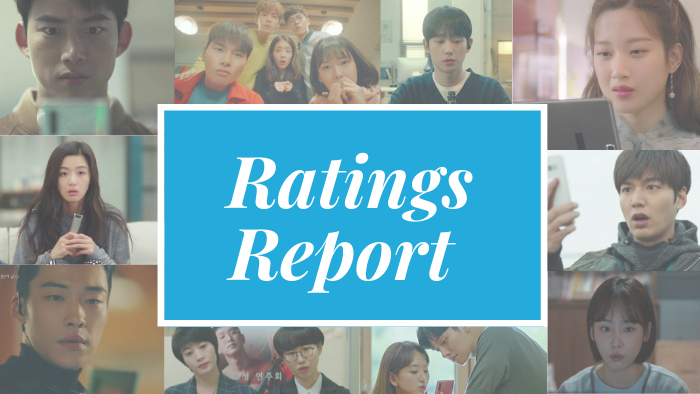
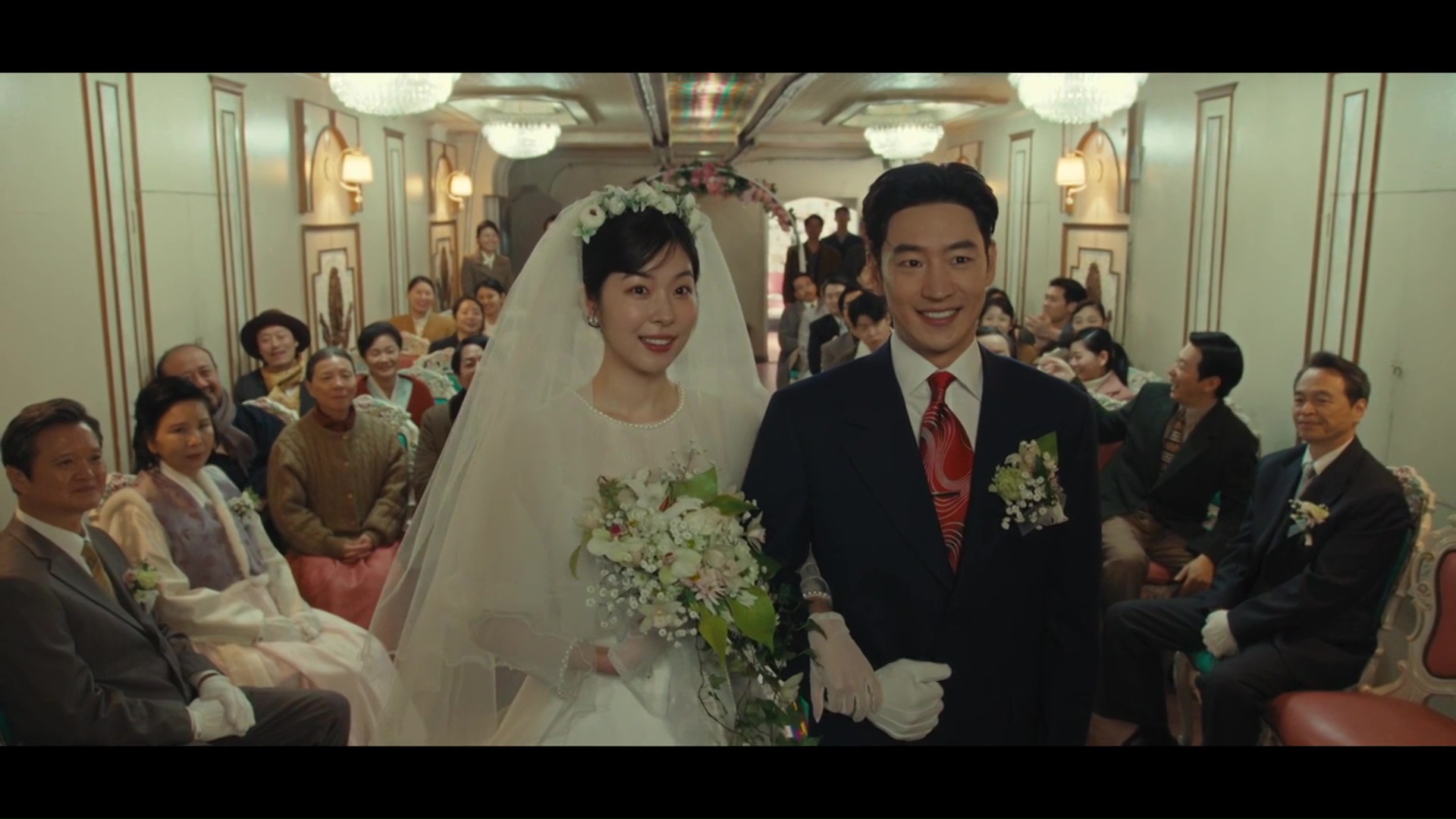
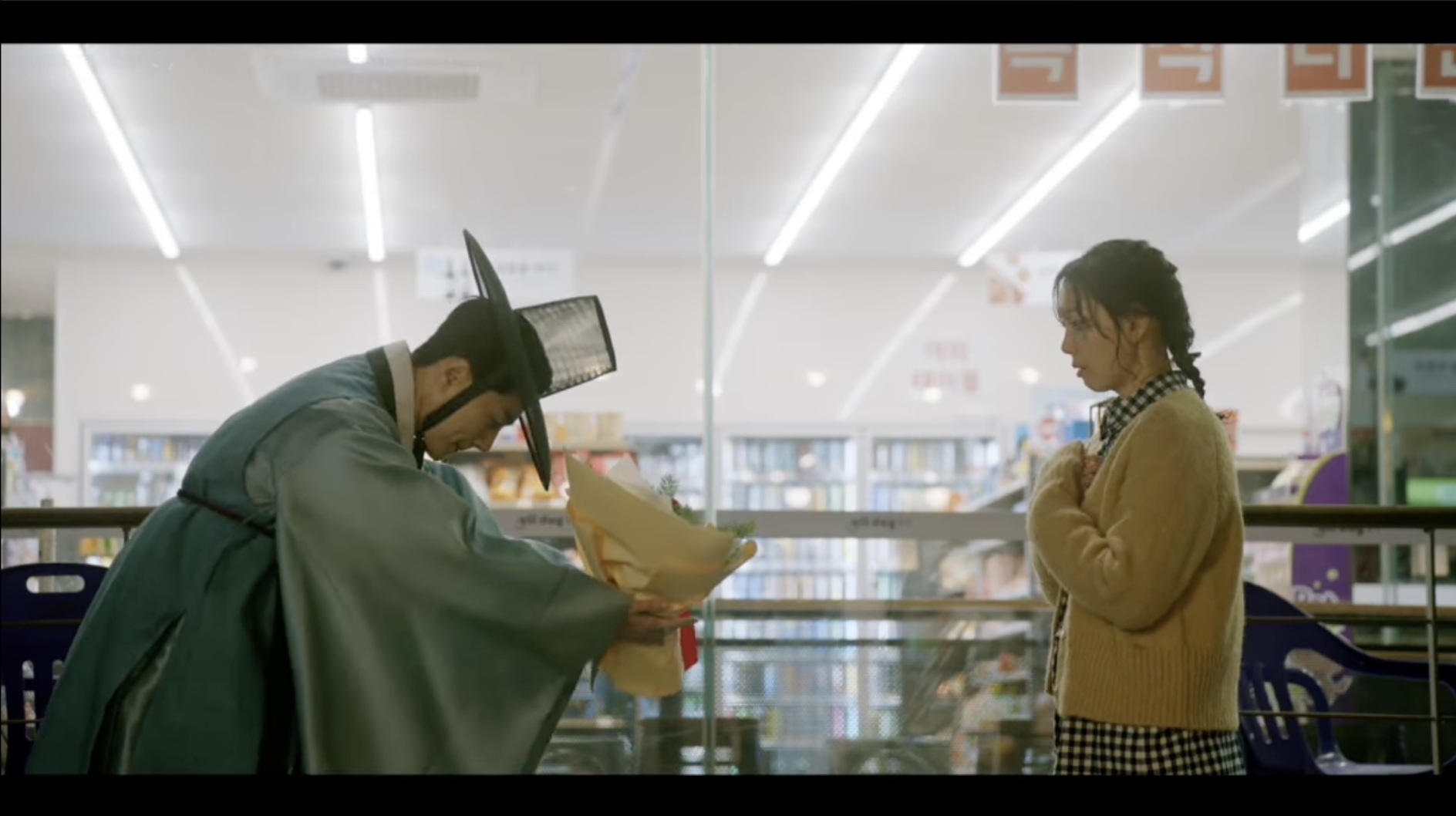
![[Drama Chat] The rise of Byun Woo-seok](https://d263ao8qih4miy.cloudfront.net/wp-content/uploads/2024/05/VS-LovelyRunner-Episode8RakutenViki-2603-scaled.jpg)
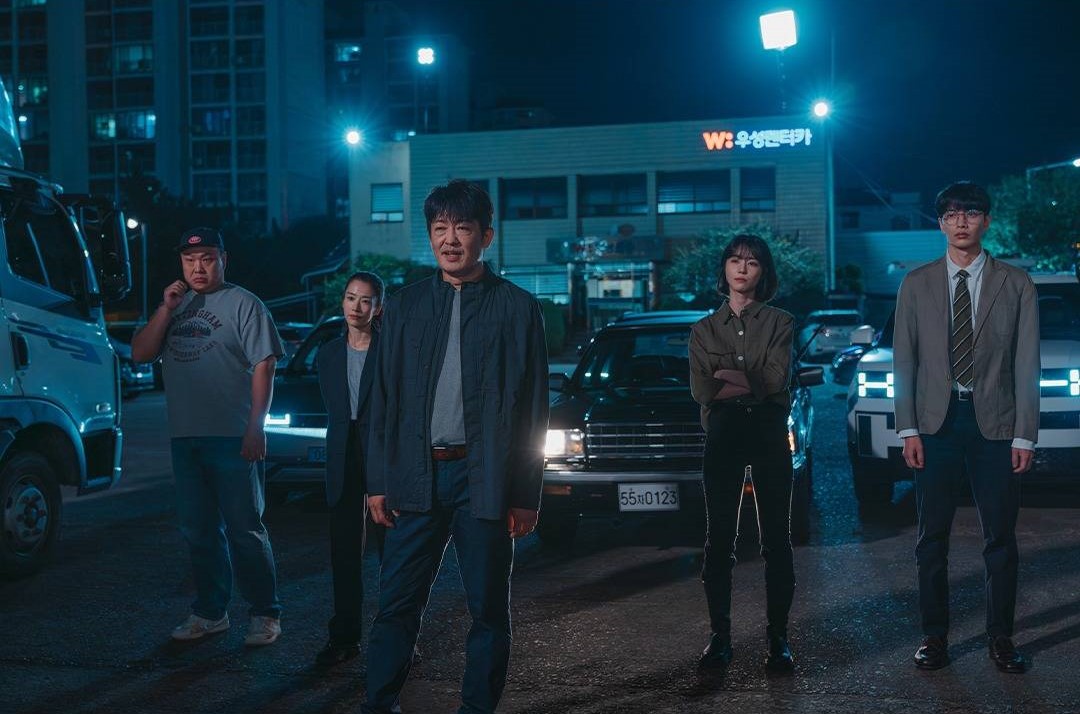
![[Why you should watch] Just Between Lovers](https://d263ao8qih4miy.cloudfront.net/wp-content/uploads/2018/11/JBL_1.jpg)
Required fields are marked *
Your email address will not be published. Required fields are marked *
101 Christia
December 13, 2011 at 11:41 PM
This is the best Korean action-drama for me! Lee Min Ho is the best character and the story is completely amazing. I have been watching this series every now and then. I cant get over it... Love it!!!!
Required fields are marked *
102 Heelie
December 13, 2011 at 11:54 PM
I have only watched 1 drama from beginning to end this year and it was "Best Love"! Totally love all the past works of Hong's sisters and it did not disappoint! Thankyou so much for your review and now I am having second thoughts about watching "Princess's man". I hope next year will be better than 2011!! Looking forward to read more of your insightful and witty comments next year!!
Required fields are marked *
103 Elizabeth
December 14, 2011 at 12:30 AM
THanks for the review! Your writing is excellent. U shd publish a book!
Required fields are marked *
104 KANGly
December 14, 2011 at 2:15 AM
49 DAYS and KANG-ahhhhhhhhhhh!
Required fields are marked *
105 soleil623
December 14, 2011 at 3:36 AM
Many thanks for this year end review. I must say that I have not been watching the dramas since long but this year has been exceptional and I watched almost all mentioned in the review. I just love OB and Me too flower.I cannot understand how this drama is receiving so low ratings. Dream High also unforgetable.
Required fields are marked *
106 Yi Xuan
December 14, 2011 at 6:36 AM
Excellent write-up!
Required fields are marked *
107 Alkachan
December 14, 2011 at 7:03 AM
Waw already another year with at least 1 hour spent every day on your wonderful drama-Bible-fun-debating-family-website !
Thank you again for this daily treat, and best wishes to all of you writers, viewers and commenters !
Required fields are marked *
108 Chicsassymom
December 14, 2011 at 7:34 AM
The Princess' Man for the win! :) ...you read my mine, my heart, and my soul even!
City Hunter too...;)
Although, I feel Myung-wol is better, than okay! ;)
Thanks again! Dramabeans rock!
Required fields are marked *
109 Chicsassymom
December 14, 2011 at 7:35 AM
too excited...i meant you read my mind! (not mine)
Required fields are marked *
110 nickynisa
December 14, 2011 at 7:38 AM
without a doubt Tree With Deep Roots is one of the best kdramas in 2011.
Required fields are marked *
111 dapinaymrs
December 14, 2011 at 10:33 AM
omg, I am loving JB's reviews with verdicts from the stick-o-meter!
Also, seeing this reminds me that I have lots of catching up to do. I have been reading a lot of great feedback for Ojakgyo Brothers, Greatest/Best Love and FBRS. Which makes me think it's either I've spent too much time on those actor/idol backtracks or I've been I've been stuck on dramas like City Hunter and Dream High for way too long or both.
I need to get back to watching TPM and TWDR! I got side-tracked watching Dream High and now I need to find a way to get...gggeet...ggeeeet oveeeer!
(Totally agree with JB. Eunjung's Baek Hee was the most difficult role to portray. I found myself feeling all kinds of emotions for her--from loyalty to pity to hate to wanting to defend her, so messed up that I found it hard to love her back at the end. But still, Eunjung showed that kind of depth in acting, which is admirable.)
Looking forward to Part 2! ^-^
Required fields are marked *
112 korazylady
December 14, 2011 at 10:40 AM
Thanks, JB. I love reading year-end reviews! Love reading everyone's opinions, too. Some shows stick in my brain because of the actors (Park Shi Hoo + the mane of glory), some for the characters (Song Yi Kyung and ensemble in 49 Days). Some are like that annoying residue left when you peel a sticker off that you hope will wear away in time (for me it was BL, apologies given.....)
I am surprised there isn't more about Thousand Days Promise, which to me is the best written drama ever. Due to past personal experience, I feel this show is so authentic. (Probably couldn't have handled it two years ago, tho, and can understand others not wanting to watch due to the tissue factor.) Even though the inevitable is coming, the characters, actors and also writer will stick in my mind forever!
Required fields are marked *
113 Isabella
December 14, 2011 at 12:24 PM
I'd agree with you on most of the reviews. I haven't watched all the dramas listed here (need sleep, study and work).
I have to say that out of all of them, the most sticky to me was 49 Days. Yeah, yeah, I wasn't too fond of the ending but it was truly a drama that would not only have me in the edge at every turn but also a drama that made me think about my own life and the people around me. Definitely my favorite of 2011.
I love Vampire Prosecutor (who doesn't), The Princess' Man, City Hunter and FBRS. I watched Manny but didn't finish it, I only liked the OST (:P)
High Kick is on my list to start watching over the christmas break but all the other dramas mentioned are a MEH in my dictionary... I guess the other dramas were not my cuppa tea.
Looking forward to next year's dramas... hopefully a better year for dramas and MORE CABLE SHOWS!! I'm loving this cable stuff, really...
Required fields are marked *
114 mnstpdu08
December 14, 2011 at 4:17 PM
I didn't expect to like The Princess' Man or City Hunter, but those have to be my favorite dramas this year. I also love Dream High, Flower Boy Ramyun, I Need Romance and many other. This year's dramas were great! I think you should also do a list on worst dramas of the year.
Required fields are marked *
115 Cruelsummer
December 14, 2011 at 6:44 PM
This is awesome.
I am especially happy about your inclusion of Baby Faced Beauty. Completely underrated. I loved it before, but after reading your take on it I love it on a whole new level. I was really just focused on how adorable Daniel Choi is, but I love the fact that he put in all that hard work for his Noona not because he wanted to be with her, but just because he believed in her and wanted to see her succeed. It's really rather refreshing in this sea of chaebuls bullying their way into the leading lady's heart.
Required fields are marked *
116 Rule
December 14, 2011 at 11:35 PM
Thanks DramaGirls!!!
I totally agree with your veiws and comments.
Always refer to your remarks and watch my dramas
Love them mostly!!!
Required fields are marked *
117 Jaykah
December 15, 2011 at 2:25 AM
Thank you so much for this!! I agree with everything you said about The Princess Man, such an epic drama.
Required fields are marked *
118 pam
December 15, 2011 at 4:16 AM
well, since i'm yet to watch all of those drama, I can only say a little.
49 days : too melodramatic and doesnt stick to me.
city hunter : a lot of people would throws me bricks for this but I find it just so-so and overrated, and boring. yes. or maybe its just Lee MinHo thing that doesnt do it for me.
princess man = yes, i like it. but that's it.
TWDR = now that's the winner for me. never I have live-streaming, watching for a drama. this drama force me to live streaming for the first time and I absolutely love it! its a brain and heart drugs. its so addictive! its been a loooong time that I can't tell what will happened next in a drama. this drama made me cry, scream, curse, hate, and pull my hair like no other drama can. Hail Sejong!!!! and Jung Ki Joon: shame on you. you've better die!!! dieee!!!!
Required fields are marked *
119 Raine
December 15, 2011 at 6:05 AM
2011 was a pretty darn amazing year for me. (My first full year as a k-drama addict.) Best Love, City Hunter, the Princess' Man, FBRS and Dream High are by far my favorites. The kind of Favorite that you watch a million times and try to rope your unwilling friends and family into watching.
Required fields are marked *
120 tarianantatoer
December 15, 2011 at 10:14 AM
Looking back I tend to remember about the characters way more than the story itself, so these characters rules my stickymeter: Dokko Jin, The Scheduler, Chwa Chi-soo, Song Sam-dong. Favorite Dramas of the year: FBRS, Best Love, CYHMH, 49 Days, TPM (Episode 1-23) and I think City Hunter is overrated, loved LMH, though.
Thank you for the review JB.
Required fields are marked *
121 cherkell
December 15, 2011 at 12:54 PM
Oh gosh, where are my manners? A big heaping THANKS to JB for posting the annual Dramabeans Year End Sticky Recap. Although I have yet to watch more than 5 or 6 dramas in any given year since 2003, these are always a good way to get an inkling of what others think about such-and-such production. I may or may not agree with what everyone is discussing, but as the famous saying goes, "One man's ceiling is another man's floor." Or, in more recent-Internet-speak, YMMV. :)
Kamsahamnida chingus... bring on 2012!!
Required fields are marked *
122 NoOne
December 22, 2011 at 8:01 PM
Urgh ! I'm still wasting too much time on City Hunter. It always come to my mind whenever I'm bored and feel like watching k.drama on the weekend.
Required fields are marked *
123 mher5715
December 27, 2011 at 10:45 AM
thanks for the recap, you were on target for the top 3 dramas i liked for year 2011. best love, the princess man and city hunter. where's soompi's recap?
Required fields are marked *
124 Ghettoe
December 28, 2011 at 11:02 AM
I can safely say, you and me dear author are looking for different things in a drama. For one, things like Dream High left me appalled and just contemplating the quality of Korean dramas these days. Also, Jun Kwang Ryul and Choi Min Soo are some of my favorite actors but Warrior Baek Dong Soo was a train wreck that could not be stopped. It had nothing to say after the fifteenth episode and just endlessly dragged on with a very lackadaisical plot that left me reeling and cursing the writers. A stellar cast but horrible plot and production. A Tree With Deep Roots is undeniably my drama of the year. It was thoroughly engaging in so many ways that I was blown away. From the crappy atmosphere, the the heavy feeling behind a simple step, this drama was gold. It was the most thought out Drama I've watched this year and currently rivaling it for me is Brain. Flower Boy Ramyun was a mess. I cannot believe people are engaging in it. The over exaggerated humor overly downplayed the emotional scenes. It was hard taking an emotional scene seriously when you knew in ten minutes the character would recover and start clinging to the wall in an exaggerated way. On top of that, it wasn't funny. Did not once laugh out loud. Also, no comment on acting? Seriously, I am one of those people who cannot commit without good acting or even decent. I would love to enjoy a movie or drama without analyzing the acting but that is something I am incapable of since I was young. For me good acting is one of the biggest reasons I jump in.
Required fields are marked *
125 Jessica
December 28, 2011 at 10:45 PM
I'm glad I'm not the only one in "The ending betrayed me camp" for 49 days. By the end I was just like so drama after ending like that your point was what exactly? I still love the scheduler though.
Required fields are marked *
126 wordylilchacha
January 14, 2012 at 9:52 AM
okay now i know, what will i watch next.
I agree with you in baby faced beauty. daniel choi made it more enjoyable. But i also commend jang nara's effort. it was way different compare to her previous series.
Required fields are marked *
127 sogba
February 9, 2012 at 5:31 AM
Excellent recap! Very well done!
Required fields are marked *
128 Seyi
July 3, 2012 at 5:50 PM
City hunter is excellent
Required fields are marked *
129 Sapphire
September 2, 2012 at 1:04 AM
Flower Boy Ramyun Shop did it for me! Actually Jung Il Woo did. Actually I was amazed with almost all of the actors in it. Flower Boy was only the second Korean drama I've seen and is the one that made me addicted. My first Korean drama was Crime Squad, which actually was quite good but not addictive enough for me to follow through. Only after more than 6 months, I decided to check out Korean dramas again and Flower Boy was showing. After a couple of episodes, I was hooked. And I did not look back ever since. I do not regret not having known Korean dramas much earlier. I am now enjoying them one by one. While waiting for the new ones to complete, I'll just watch those from past years. I can't wait to get home each day to continue or start a new one.
And having a review site like this one makes it all the more enjoyable as your recommendations and recaps make it easier to choose the dramas worth watching. That's where I would like to thank you everyone for all your wonderful and hard work and thank you for this site!
Required fields are marked *
130 Wens
August 27, 2013 at 5:43 AM
The Princess Man was my fav drama of 2011. Actually, possibly one of my favourite K dramas ever.
Required fields are marked *